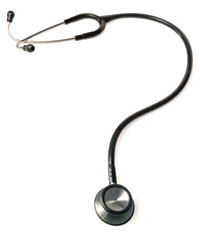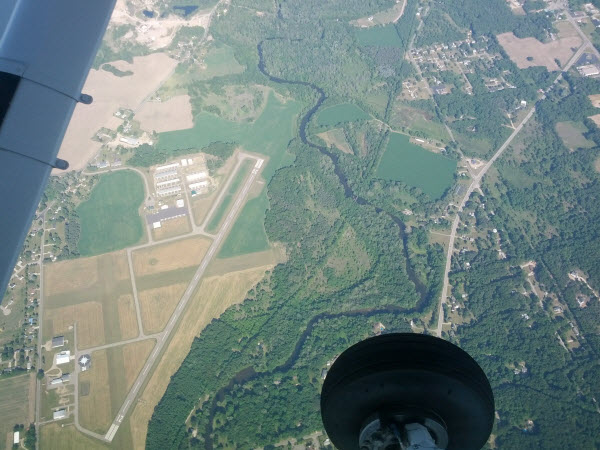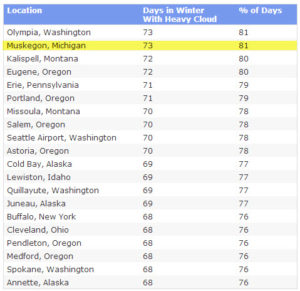
Recently, a friend considering medicine as a career asked me for my perspective. I actually had a bit too much fun with this, reflecting back on how I ended up here in this little cubicle with my First Aid and a computer screen taunting me with 2200 practice questions to be studied so that I could jump through the next of many academic hoops in the long progression toward becoming a productive member of society. Well, I may know a bit less about biostatistics for STEP 1, but the time spent reflecting was valuable to my mental health. The curse of being a very long-sighted, future-thinking individual is that you’re willing to accept almost any punishment in the short term if it is necessary to achieve your ultimate utopian dream life. Despite being experts on the subject of delayed gratification, even us med students can get a bit weary of the grind. So, the chance to be introspective for a bit and recall why all this hard work was supposed to be worth it turned out to be quite refreshing.
The Questions
How did you know that this was what you wanted to do?
I can’t say I was that person who knew from birth that they wanted to be a Doctor when they grew up. Nor did I have any one experience or revelation that this is what I wanted to do, despite what my elegant Personal Statement may have implied. Honestly, I could have seen myself in any number of fields (medicine, engineering, IT, military, aviation, business, consulting, intelligence, game development…you name it) – it came down to Aerospace Engineering vs Medicine in high school, and Medicine won out. There were many reasons for the ultimate decision, including both the rational (nature of the work, didn’t want to be constrained to a certain geographical location, lifestyle, pay, work/family balance) and personal (I didn’t want to be a cog in a wheel, wanted to directly and unquestionably be doing something good for the world and be helping people, didn’t want to work for a bean-counter, didn’t want to slave for years making a revolutionary trinket that would be obsolete and forgotten a decade later, wanted independence, etc…). In the end, I wanted a career that I could look back on years down the road and be proud not only of my own accomplishments, but more importantly in what I had done for the world; the fact that I had made a significant and positive difference in the lives of my patients. Above all else, this is why I chose medicine, and why, no matter how hard the daily struggle, the frustrations of politics, academia and bureaucracy, or the boredom of memorizing minute facts for an exam, I will always be satisfied with my choice.
Just MSU CHM. I fell in love with the school, the collaborative (vs competitive) atmosphere and our magnificent, $100M new campus in Grand Rapids, MI. The fact that I wouldn’t have to move was also a plus. I applied through my undergraduate university’s Early Admissions Program, which meant that I only applied (early) to MSU, took the MCAT early (in May vs July or Aug), and got a decision almost a year early (June after Junior year). If I hadn’t been accepted, I could have still entered the normal application process without losing any time. I wanted to stay in state for med school – there is little reason to spend double the tuition going to an out of state or private school, unless you are either dead-set on getting into a highly prestigious residency or want to practice Academic Medicine at a prestigious university. Say your life goal is to do a Retina fellowship in Ophthalmology at Johns Hopkins’ Wilmer Eye Institute. Are you going to get one of those 4 or so spots without being from a top-10 medical school — probably not. Can you still go into Retina Ophtho – absolutely. Just do well on STEP 1 and perform well during your 3rd year rotations and your choice of medical school (as long as it is an accredited MD school in the U.S.) is of little significance in what specialty you can attain.
How did you prepare for the MCAT?
I got suckered into taking the Kaplan course. Fear is a powerful motivator, and the fear that I wasn’t doing everything I could to prepare for a test that would determine my life overcame my reservations (and the protests of my wallet) for taking said prep course. Hindsight is 20/20, and if I had to do things again, I’d have followed my gut and just used the resources recommended by other students on SDN, made my own plan, and stuck to it. Actually, this is what I mostly ended up doing anyways, albeit with the inferior Kaplan books, a class taught by a GVSU senior that was more distraction than a help, and $1800 less to my name. If you’re the type that needs externally-imposed structure and guidance, a prep course may be worth it, but otherwise I’d recommend against it. Get the best books, take a solid month or so off to study them, do lots of practice tests, and take the real deal when you’re fully ready. In the end though, it all worked out, so I guess I can’t complain too much.
I checked most of the important boxes for the “good med school applicant”. In order from most to least important, they would be a good MCAT score, competitive GPA, personality / “fit” for the school based on the impressions made during your interview and your personal statement, service (not necessarily related to medicine) and work experiences in the field (I was Nurse Assistant for a few summers during undergrad), research and/or publications (dissecting pig hearts was actually pretty fun) and other leadership experiences / awards (president of bla bla bla organization, prestigious scholarship of awesomeness, and the ever illustrious Dean’s List) ,etc.. Unlike residencies, which care much more about the first two items (test scores and grades), it is very important to have a “balanced” application for medical school. All of these items are important.
Is med school impossible?
Haha, probably not the best time to ask this question – I’m currently studying for USMLE STEP 1, our first licensing exam – which makes the MCAT look like a colorful, fun toddler toy in comparison. We refer to it as the mKitty. Seriously, though – it’s easy to become overwhelmed with the path ahead. The best way to tackle med school is to focus on the now. Take things day by day, break large tasks into smaller tasks, and don’t get caught in the trap of comparing yourself to others and fretting about the little things that don’t matter. There may be some long days, but in retrospect, time flies by and you really get a sense of accomplishment looking back on how far you’ve come.
Do you get sleep?
lol, yes. I’m ferociously protective of my sleep. Actually, I can honestly say I had more late nights studying in undergrad vs med school. You could cram for organic chemistry. Cardiology? Not so much. With the amount of materiel we are fed, there is little to be gained by an all-nighter. Even procrastinators like myself figure out real fast that their definition of procrastination must at least be…adjusted a bit. I feel like I’m cramming for STEP 1, and I’ve been studying for 35 days straight, with several more to go until the big day. This is as extreme as it gets, as like the MCAT, the impact of your score determines the career options that remain available to you. That said, I’ve managed to get 7-8 hours of sleep each night, work out an hour each day, find time to eat, and even sneak in the occasional break for a bike ride, movie, or night with friends. It’s not impossible – you just have to manage your time.
Well, everyone “specializes” in that you will have at least a 3-year residency after medical school in which you train and become certified in a particular field. Family Medicine is no less a specialty than Neurosurgery in this respect. You can then go on and do a Fellowship to sub-specialize in a particular niche within your specialty. I begin my clinical rotations this summer, and I fully expect that the experiences I’ll have over the next year will have the greatest influence on what I end up going into – regardless of my current leanings. Really, though, this is one of the coolest parts of medicine – you have so many options from which to choose a field that fits you and your interests / needs.
For those still in undergrad and considering medicine as a career, it is important to learn as much about what’s involved in this decision as you can. Keep asking questions, shadow some Docs, get involved in pre-professional clubs, and most importantly – have fun! Don’t waste those blissful undergrad days working yourself too hard just for the sake of it (read – don’t torture yourself with the waste of time and sanity that is analytical chemistry for a meaningless minor, unless you’re actually interested in…titrating colored water and writing lab reports…and stuff).





